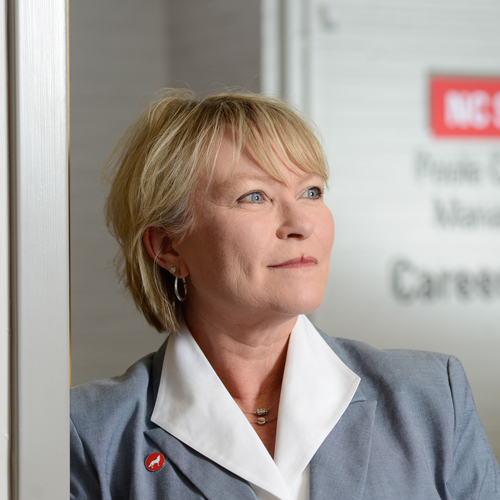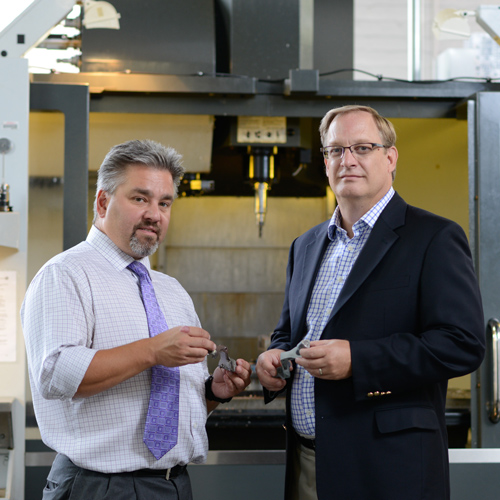
A History of Forward Thinking
For decades, classes in business, economics and accounting were taught at NC State through the Department of Economics and Business.
By the 1980s, that lone department was graduating more NC State students than any other, which highlighted an opportunity for a new college to be created in its place. In 1990, a committee was formed to explore that possibility.
Two years later, in September 1992, “College of Management” was carved into the granite above the front doors of Nelson Hall, and NC State’s tenth college was born. From the beginning, it was deeply rooted in the university’s strengths in STEM and other practical fields.
A History of Forward Thinking
-
1990 A committee forms to assess the feasibility of a new college at NC State.
-
1992 The College of Management is established.
-
1993 Richard Lewis becomes the college’s first full-time dean.
-
1993 The Master of Accounting degree is established.
-
1999 Jon Bartley becomes the college’s second dean.
-
2000 The college is accredited by the AACSB.
-
2002 The Master of Business Administration degree is created.
-
2004 Ira Weiss becomes the college’s third dean.
-
2007 Ben Jenkins III endows the college’s graduate programs.
-
2010 Lonnie and Carol Poole endow the Poole College of Management.
-
2014 Steve and Judy Zelnak endow the dean’s chair.
-
2016 Annette L. Ranft becomes the college’s fourth dean.
-
2017 The Poole College of Management celebrates its 25th anniversary.
“Engineers, scientists, veterinarians, architects and others … are ultimately managers or need linkages to management to excel at what they do,” says Robert Clark, Zelnak professor of economics, who served as interim dean and oversaw the college’s early curriculum development. “That was the opportunity they saw for this new college.”
That emphasis on supporting other professionals and entrepreneurs — and serving NC State’s land-grant mission — has endured ever since.
“We were expressly built to be different than other business schools,” says Stephen Markham, one of the college’s founding professors. “We don’t study how you start a high-tech startup; we do that. Our students work on real projects and real companies. They’re learning not just the concepts but the application at the same time, and that gives them a big advantage in the market.”









View Comments 0